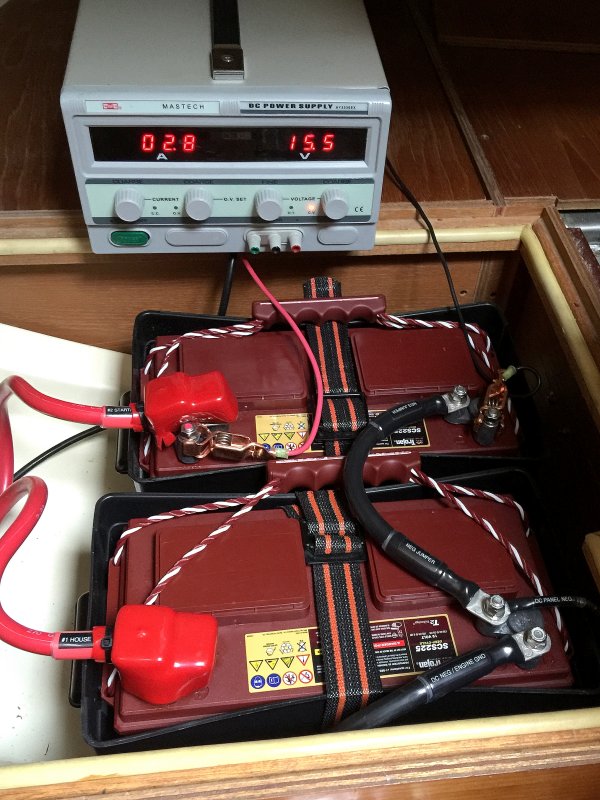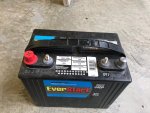You will never know how long your batteries could have lasted.
Yeah, but that goes either way. Tenders can also cause battery failures.
Batteries hate heat, it kills them, an improperly operating tender is far worse then no tender.
But, again, Im just replying to your "how long batteries could have lasted" statement. No one ever knows how long.
For me, I always followed Mercruisers recommendation. Disconnect battery and store in a cool place.
3 years of a boat battery and I replace it. To me replacing a boat battery (or batteries) is no different then replacing my flashlight batteries, I want a new fresh battery in there every three years, batteries cost pennies compared to the cost of operating a boat and heck in some cases depending on what boat I had cost less then a tank of gas. *L*
Also having a fresh battery reduces stress on the charging system.
But again, as insurance, having a new fresh battery (or batteries) is always worth it to me, rather then see how long I can get one to last or not as it is to critical for safety reasons and/or one can always go to dual batteries if they dont have them.
Now that boat on a lake instead of the ocean (which was most of my life) I am not as concerned but will still replace every 3 years and only have one on this boat and wont bother going to 2 batteries.
I dont trust tenders and I do not believe all the hype about them and would love to see an actual multi year study which you never will.
Again, its what I do and I am in no way saying for someone who wants a tender is wrong, we do what works for us.



